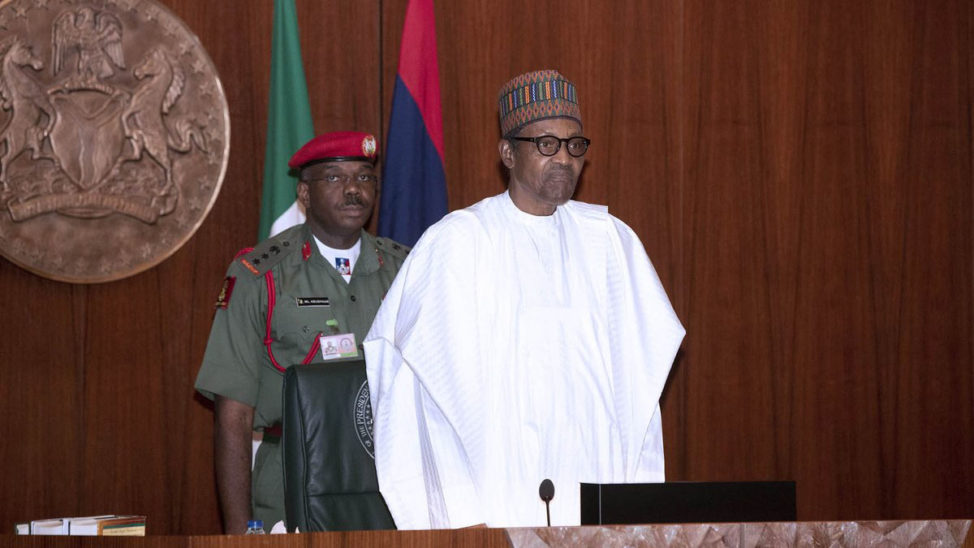 |
| Buhari. Photo/Twitter/AsoRock |
President Muhammadu Buhari has given the anti-corruption crusade of his administration a boost with his assent to a law titled ‘Mutual Assistance in Criminal Matters Act, 2019.’
The law, which takes effect from June 20, 2019, specifically seeks to facilitate the identification, tracing, freezing, restraining, recovery, forfeiture and confiscation of proceeds, property and other instruments of crime by Nigerians in other countries.
The aim, according to his Senior Special Assistant on National Assembly Matters (Senate), Senator Ita Enang, is to obtain from other countries, on reciprocal basis, mutual assistance in the prosecution of criminal matters including the location and identification of suspects, witnesses and other materials for prosecution of criminal matters.
Enang, who briefed State House correspondents on the new law, explained that other provisions of the legislation include the interception of telecommunications and conversion of electronic surveillance, restraint of dealings in property or the freezing of assets that may be recovered, forfeited or confiscated in respect of offences.
He further explained that the Attorney-General of the Federation is designated as the Central Authority for making, receiving and transmitting requests for assistance to and from other countries as well as performing other functions reserved in the Act.
Enang said the law includes other assistance that is not contrary to the municipal law of the requesting State.
The presidential aide, however, clarified that, “where the alleged offence is of a political character or an offence under military law or is not an offence under the laws of Nigeria, the provisions of this law shall not apply.”
In this article:
The law, which takes effect from June 20, 2019, specifically seeks to facilitate the identification, tracing, freezing, restraining, recovery, forfeiture and confiscation of proceeds, property and other instruments of crime by Nigerians in other countries.
The aim, according to his Senior Special Assistant on National Assembly Matters (Senate), Senator Ita Enang, is to obtain from other countries, on reciprocal basis, mutual assistance in the prosecution of criminal matters including the location and identification of suspects, witnesses and other materials for prosecution of criminal matters.
Enang, who briefed State House correspondents on the new law, explained that other provisions of the legislation include the interception of telecommunications and conversion of electronic surveillance, restraint of dealings in property or the freezing of assets that may be recovered, forfeited or confiscated in respect of offences.
He further explained that the Attorney-General of the Federation is designated as the Central Authority for making, receiving and transmitting requests for assistance to and from other countries as well as performing other functions reserved in the Act.
Enang said the law includes other assistance that is not contrary to the municipal law of the requesting State.
The presidential aide, however, clarified that, “where the alleged offence is of a political character or an offence under military law or is not an offence under the laws of Nigeria, the provisions of this law shall not apply.”
In this article:
